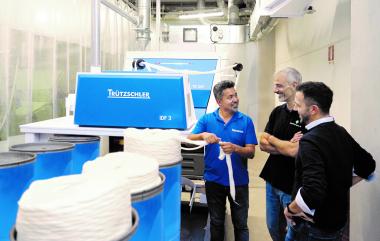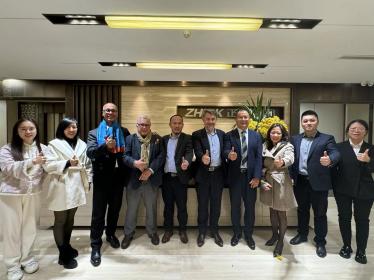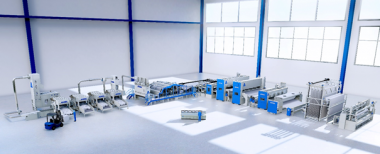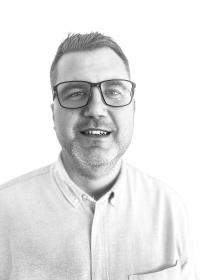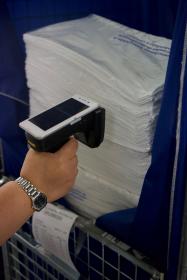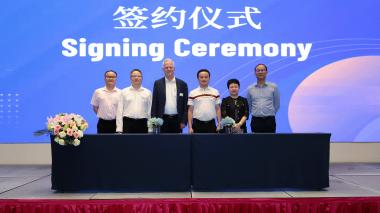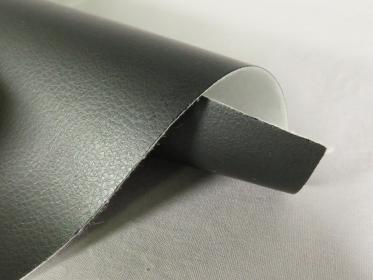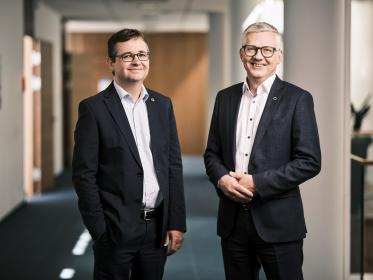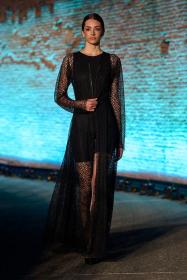Trützschler: First installations of TC 30i and IDF 3
The first installations of the Trützschler Card TC 30i and the Trützschler Integrated Draw Frame IDF 3 are now complete – and the first customers have finished rigorous testing in direct spinning applications.
The Italian company Marchi & Fildi, headquartered in Biella, was one of the first to test the new IDF 3. The company specializes in producing pure and blended yarns made from natural or man-made fibers for flat knitting, circular knitting and weaving. Its products are used for fashion, furnishings and technical applications worldwide. It also places a strong focus on reducing its environmental impact.
Marchi & Fildi’s first trials were carried out with different fiber blends. This included a blend of 70 % soft waste cotton and 30 % polyester as the raw material for rotor direct spinning, with a yarn count in a range of Ne 8 to Ne 12 and Ne 30.
Later tests involved fiber blends of 50 % PET and 50 % recycled cotton from hard textile waste for rotor direct spinning with a yarn count of Ne 30. Experts at Marchi & Fildi stated that this material blend is typically very challenging. Processing secondary fibers made from hard textile waste requires very high competence in yarn production, which Marchi & Fildi impressively demonstrates. It also requires advanced technologies. This is due to technological challenges such as significantly lower fiber length. Trützschler’s IDF technology has a special drafting zone geometry that ensures reliable fiber guidance and controls floating fibers. It generates lower drafts than a conventional draw frame passage and avoids the risk of false drafts and count variations.
Decades of experience with the IDF technology have demonstrated that the higher the short fiber content, the better the result with IDF compared to conventional two draw frame passages. In combination with the TC 30Ri, a variant of TC 30i that has been specifically equipped and configured for processing recycled fibers, the IDF 3 delivers maximum possible quality for the production of sustainable yarns.
Overall, the company’s results showed a 75 % increase in productivity over the previous card model and a 14 % reduction in energy consumption at higher production rates. Combining the TC 30Ri and IDF 3 also enabled Marchi & Fildi to skip the drawing stage from its process, which boosts quality while saving resources and cutting costs.
Trützschler Group SE


